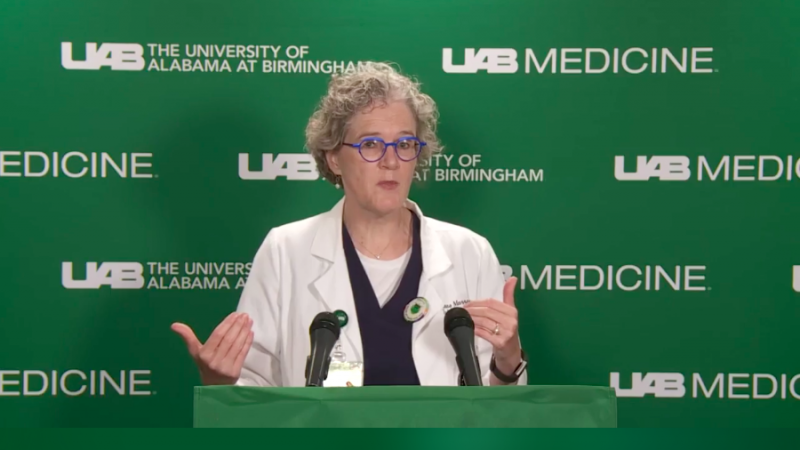NIH selects UAB’s Dr. Jeanne Marrazzo to replace Dr. Anthony Fauci
Officials with the National Institutes of Health (NIH) have selected UAB infectious disease specialist Dr. Jeanne Marrazzo to replace Dr. Anthony Fauci as the next director of National Institute of Allergy and Infectious Diseases (NIAID).
“Dr. Marrazzo brings a wealth of leadership experience from leading international clinical trials and translational research, managing a complex organizational budget that includes research funding and mentoring trainees in all stages of professional development,” said Dr. Lawrence Tabak, acting director for the NIH, in an announcement Wednesday.
Marrazzo has directed UAB’s Division of Infectious Diseases since 2016 and has been a leading voice throughout the COVID-19 pandemic for both local and national audiences.
“Jeanne served as a trusted advisor and friend who gave us the insights, guidance and confidence that allowed our institution to thrive in spite of immense challenges,” UAB president Ray Watts said in a statement. “This is a great opportunity for Dr. Marrazzo to make a big difference to the country, and it is indicative of the high regard that exists for both her and UAB. While we are sad to see her go, we are delighted that Jeanne has been called to this national service and we are proud to count her as one of us at UAB.”
Marrazzo obtained her bachelor’s in biology from Harvard University, a medical degree from Thomas Jefferson University and a Master of Public Health in Epidemiology from the University of Washington. Her research has focused on the human microbiome, including female reproductive tract infections, and sexually transmitted diseases like HIV.
In her new role at the NIH, Marrazzo will oversee a $6.3 billion budget that funds nationwide research into new therapies, vaccines and diagnostic technologies for a range of infectious diseases. According to NIH officials, she is expected to begin the position this fall.
A Planet Money guide to 5 fascinating new econ papers
The Planet Money newsletter rounds up some new economics studies.
Trump says U.S. will resume sending weapons to Ukraine after pausing last week
With Russian attacks escalating, Ukraine is dependent on air defense systems and munitions supplied by western allies to protect Ukrainian cities.
100 years after evolution went on trial, the Scopes case still reverberates
One hundred years ago, the small town of Dayton, Tenn., became the unlikely stage for one of the most sensational trials in American history, over the teaching of Darwin's theory of evolution.
RFK Jr.’s vaccine policy sparks a lawsuit from the American Academy of Pediatrics
AAP and other leading health organizations allege that the health secretary violated federal law when he took the COVID vaccine off the list of recommended shots for pregnant women and healthy children.
The health of U.S. kids has declined significantly since 2007, new study finds
A new study in the journal JAMA finds the health of America's children has worsened across several key indicators over the last two decades. That includes the number of children with chronic diseases.
Sea lions are released after toxic algae bloom in California
Marine mammal researchers are investigating how sea lions were affected by the longest toxic algal bloom on record off the coast of Southern California. Some sea lions are now being released back into the wild.









